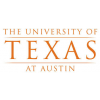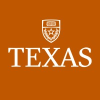
Assistant Professor, Tenure-Track Faculty Position in Organization Communication & Technology
Description
The Department of Communication Studies at the University of Texas at Austin seeks applications for a full-time tenure-track assistant professor faculty member in Organizational Communication and Technology to begin Fall 2025.
The Department of Communication Studies is housed within the Moody College of Communication, which was ranked #2 in Communication and Media Studies in the United States and #4 in the QS World University Rankings in 2023.
Moody College includes programs in Advertising and Public Relations, Journalism and Media, Radio-Television-Film, and Speech, Language, and Hearing Sciences.
The Department of Communication Studies has strong graduate and undergraduate programs and provides faculty research, teaching, and leadership support and opportunities.
The faculty in the Organizational Communication and Technology area of the department are a cohesive group that teaches a wide range of graduate and undergraduate courses and advises a considerable number of graduate students.
We welcome applications from researchers and teachers of organizational communication including, but not limited to, those who study technology, and relevant methodological and theoretical orientations.
We are interested in applicants who study a broad range of organizational communication types, practices and contexts. The contexts for our team's current research include AI and automation, crises and disasters, globalization, temporality, environmental issues, workplace democracy, supply and commodity chains, digital media, and democratic organizing.
Faculty have access to pre-and post-award external funding support and have opportunities to join the vibrant research center and institute culture in Moody College.
We are especially interested in candidates whose scholarship touches on social impact for the public good, which could align with research units in Moody College such as the Center for Media Engagement and the Technology and Information Policy Institute.
Additionally, UT Austin offers faculty opportunities to be involved in interdisciplinary Grand Challenges such as Planet 2050, Good Systems (AI for Good), and Whole Communities, Whole Health.
Qualifications
Applicants must have completed a Ph.D. at the time of the appointment. Applicants should have a promising or established program of research and have published scholarship in organizational communication.
Applicants should have a commitment to teaching excellence, an interest in advising and mentoring graduate students, and the capacity to undertake collaborative research.
The potential to actively pursue and secure external funding is also valued.
Application Instructions
Applicants should submit a letter of interest of no more than two pages, a curriculum vitae, a statement of teaching and advising, a statement of research (each statement no more than 500 words), and the names and contact information for three references.
Letters of recommendation will be requested of finalists.
Screening of applicants will begin September 23, 2024 and will continue until the position is filled. Applications must be made via Interfolio.
If you do not have a Dossier account with Interfolio, you will be prompted to create one prior to applying for the position.
If you have questions about using Interfolio, please email [email protected] or call (877) 997-8807.
Questions about the position can be directed to the co-chairs of the search committee : Shiv Ganesh, [email protected].
edu and / or Keri Stephens, [email protected].
Equal Employment Opportunity Statement
The University of Texas at Austin, as an equal opportunity / affirmative action employer, complies with all applicable federal and state laws regarding nondiscrimination and affirmative action.
The University is committed to a policy of equal opportunity for all persons and does not discriminate on the basis of race, color, national origin, age, marital status, sex, sexual orientation, gender identity, gender expression, disability, religion, or veteran status in employment, educational programs and activities, and admissions.


